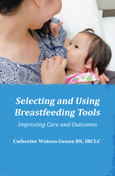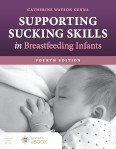If you purchase through these links,
I get a small commission. Thank you!

3/23/2013
What is involved in a lactation consultation?
An average outpatient lactation consultation takes 1.5 to 2 hours.
During this time, the IBCLC:
- Takes a history of the mother, focusing on any chronic conditions that might affect breast development, hormonal and nutritional support for milk production, and early management of breastfeeding that might affect calibration of milk production.
- Takes a history of the baby, with particular focus on birth interventions and medications, medical procedures required after birth, and feeding history prior to the consultation.
- Assesses the mother's anatomy, neurobehavioral organization and ability to support the baby both physically and emotionally. Assess mother for postpartum mood disorders and psychosocial needs. Assess emotional adjustment to and acquisition of the maternal role. Counsel parents around any issues, provide referrals if needed.
- Assess the baby's neurological functioning (including muscle tone, state stability, autonomic stability),global, craniofacial and oral anatomy and function, bilateral symmetry, any malformations or deformations, and their likely effect on feeding.
- Assess the baby's health and nutritional status, maturity, and feeding skills.
- Assess breastfeeding skills and interactions in both the mother and baby and the dyad as a unit.
- Watch a feeding, looking particularly at postural control, state stability, ability to find and attach to the breast (using sense of smell, hands, cheeks, lips, tongue), the component movements of sucking, suck:swallow:breathe coordination, effort of respiration, ease of initiation of sucking, ability to sustain sucking. Sucking burst organization, milk transfer, ability to feed until nutritional needs are met.
- Assess and evaluate problems identified, rate the relative contribution of each to the breastfeeding difficulties, identify management changes, compensations and facilitations that might be appropriate for the dyad. Confirm observations with oral examination, digital suck exam, breast palpation, cervical auscultation, test weights, etc as needed.
- Apply treatment probes - assess the effect and if successful, teach the new technique to the mother and asses her acceptance/ability to execute it. Allow time for the dyad to practice the new techniques. Educate the mother/parents about WHY you have recommended these things.
- If milk expression is required as part of the plan, teach the mother to express by hand or with her existing breast pump, problem solve expressing problems, problem solve milk production problems. Recommend specific rental equipment if needed.
- Prepare a written care plan, and go over it with the parents.
- Teach parents how to use, care for, and clean any feeding equipment used in the care plan.
- Provide anticipatory guidance, what to expect, signs that feeding is improving, danger signs that mean the health care provider should be seen, when to follow up with the IBCLC.
- Refer the mother to mother to mother support groups (La Leche League, Breastfeeding USA, Nursing Mother's Counsel, Baby Cafe).
- Write a report to/communicate with the baby's (and mother's, if applicable) primary health care provider detailing findings and interventions and identifying any areas that require medical follow-up.
- Then there's phone and email follow up after the consultation!
Feedback

Share your own nuances. Email your submissions to: vincent.genna@gmail.com. Please include "comment" and the title of the post in your subject line, and your name and credentials if you would like them posted.

